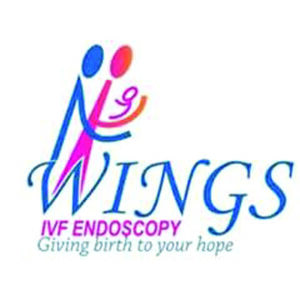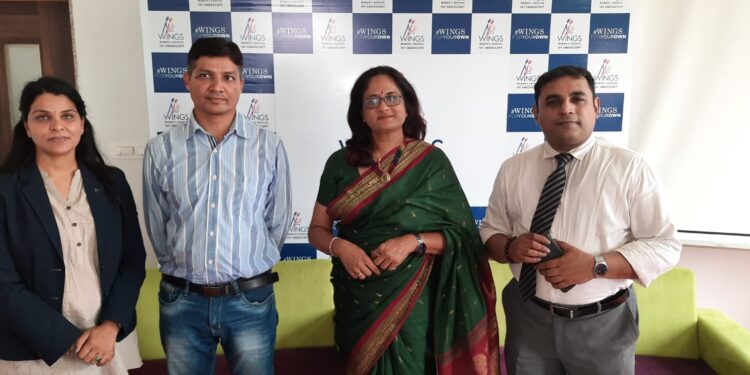Importance of OWN Eggs Pregnancy in the Parenthood Journey through IVF
The University of California estimates that about 15% of couples worldwide have trouble conceiving. Globally, 48.5 million couples experience infertility. In the year 2019, 9% of men and 10% of women between the age of 15 and 44 years reported infertility problems in the United States. Furthermore, a report by World Health Organization (WHO) estimates that 1 out of every 4 couple experience infertility in developing countries. Nearly, 27.5 million Indian couples are actively trying to conceive because of infertility.
The worldwide data rises a growing concern about infertility. The alarming rates of infertility throw light on the sudden change in the social and interpersonal lifestyle. The societal stress, financial independence, and unhealthy eating habits mess up the hormonal balance and result in infertility.
As a matter of fact, in many corners of the country, women are still regarded responsible for infertility. The value and rights of a woman are still bound to the birth of a baby. A woman unable to bear a child or finding it difficult to give birth is frowned upon. Moreover, male infertility is a grave concern as compared to female infertility. Research has shown that 30% of Indian men have normal semen characteristics that cause problems in conceiving for women. The societal stigma attached to the alarming concern is another reason for its rampant growth. Couples hesitate to speak about their reproductive issues and shy away from such conversations. Surprisingly, a lot of couples are not even aware of the available infertility treatments.
Science has proved that infertility is not gender-specific. Both men and women are equally responsible for the pregnancy. A variety of medical conditions or hormonal changes may impact the reproductive health of both genders. Recently, the world is seeing a surge in numbers due to a lethargic lifestyle. A lifestyle devoid of any physical activity causes obesity which is directly linked to infertility. Obesity affects the semen quality in men and causes polycystic ovarian syndrome in women. Obesity and additive factors such as using mobile phones for hours, job pressure, pollution, and conscious decision to avoid pregnancy are changing the hormonal balance. Moreover, unprotected sex, sexually transmitted infection and overuse of emergency contraception also trigger infertility in the long run.
It is important to note that infertility whether male or female can be treated. The science has not only broken the gendered specific taboo but also paved a way for couples to enjoy parenthood. Assistive reproductive techniques (ART) are one of these technological advancements that are helping thousands of couples across the nation. In this procedure, the egg and sperm from couples are fertilized in a laboratory. Once the egg is fertilized or converted into an embryo, it is implanted into the woman’s womb.
Current Donor Egg V/S OWN Egg Scenario

The woman can either use her egg or a donor egg for the fertilization process. The baby, however, wouldn’t be biologically similar to the woman. In several cases, the doctor might recommend donor eggs to couples. The couples should, however, know that a donor egg is only indicated in the cases of premature ovarian failure, menopause, low AMH levels, age above 42 years, and autosomal dominant genetic disease in women. Dr Nisha Agarwal, IVF Expert and Centre Head, Udaipur states “The unstructured and fragmented Indian IVF market is deadly. More than 60% of couples visiting us are recommended donor egg fertilization. The couples are not even aware that they can get pregnant with their eggs.” She adds “This occurs due to wrong diagnosis, lack of knowledge and interpretation of AMH levels. The couples, thus, do not receive the right guidance and fall for donor egg IVF.”
Why Pregnancy with OWN Gametes is Important?
Pregnancy is a beautiful process. The would-be parents dream to see a reflection of them in their child. The joy of raising their own child and watching him grow is surreal. The doctors at WINGS IVF Hospital, Udaipur understand why getting pregnant with your OWN gametes is important.
Dr Nisha Agarwal, IVF Expert and Centre Heard, Udaipur states “Egg donation is not even required in the majority of cases. The primary goal of an IVF expert is to reduce the cycle attempts. This can easily reduce the need for donor eggs. Furthermore, it will also reduce the financial and physical impact on the woman.”
Why WINGS IVF for OWN Egg Pregnancy?
Owing to the prevalent third-party donation, Dr Nisha Agarwal, IVF Expert and Centre Head, Udaipur focuses on bringing a solution. She says “IVF lab is the soul of the process. A well-maintained lab with meticulous quality control and quality assurance is paramount to maintaining the air quality of the lab. A standardized lab can greatly increase the conversion of the quality embryo from even a small number of eggs. In this way, the mothers can get pregnant with high-quality embryos developed from their OWN eggs.”
At WINGS IVF Hospital, we focus on reducing IVF cycle attempts to avoid third-party donations. Our advanced AHU lab with microfiltration closed system, and close time-lapse incubators add up to our IVF process. These advanced methods ensure the formation of qualitative embryos per peg. This improves embryo formation even in extremely difficult situations such as low AMH, advanced maternal age, and recurrent IVF failure which are the main reason why people are been explained for donor eggs.
In India, infertility is no longer a private sorrow. The ever-increasing numbers show us that the problem is growing steadily. In such a dire situation, we consider it a privilege to bring you closer to parenthood. At our hospital, we receive several patients with varied reasons for infertility. We take it as our responsibility to diagnose and treat them effectively. Our mission to bring joy into our patient’s life with their OWN gametes sets us apart from others. We put our best foot forward with advanced technology to let you enjoy your parenthood.












